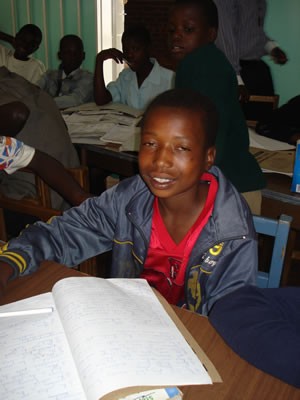
At the Presbyterian Church in downtown Harare, Zimbabwe, 15-year-old Lovemore and other children crowd around tables in a small room, leaning over their workbooks. Their uniforms are clean and worn with pride, and in many ways it would be difficult to distinguish this classroom from any other.
These are children like Lovemore, who lives at the Mbare bus terminal, a crowded, dirty and dangerous place for anyone, especially at night. They live among illegal vendors, thieves and prostitutes, and are under constant threat of harassment, even by police.
Lovemore said that he started to face problems once his mother died and his father stopped paying school fees. When Lovemore’s father remarried, he was forced onto the street, no longer welcome at home.
After meeting an outreach worker from the Presbyterian Children’s Club (PCC), he felt encouraged to take advantage of the opportunity to get an education. Since starting the program, he has excelled academically and is at the top of his class. He spends his mornings at the PCC, where he receives his only meals for the day. At night, he sleeps on the ground at the terminal. The few articles of clothing he owns are hidden in secret places around town so that no one will steal them.
At the end of each day, Lovemore and his classmates take their books with them to study at night in the market square. "We read by the street lights at [a shopping complex], but sometimes the guards chase us away."
Each year, the top three students are given a chance to go to formal school. Those who successfully complete their grade-seven exams will be given a PCC scholarship to attend a boarding school, proving there is hope for forgotten children like Lovemore.
Started in 1996, the program provides free education, basic meals, psychosocial support, health care and clothing to the more than 70 children. Last year, through the PCC program, Children First—with USAID funding—fully supported 17 of the 58 students who are now attending formal schools.
"There are people who care here, and other kids like me,” Lovemore said. “It feels like this is my family."
Note: The subject’s name has been changed to protect his privacy.







Comment
Make a general inquiry or suggest an improvement.